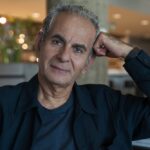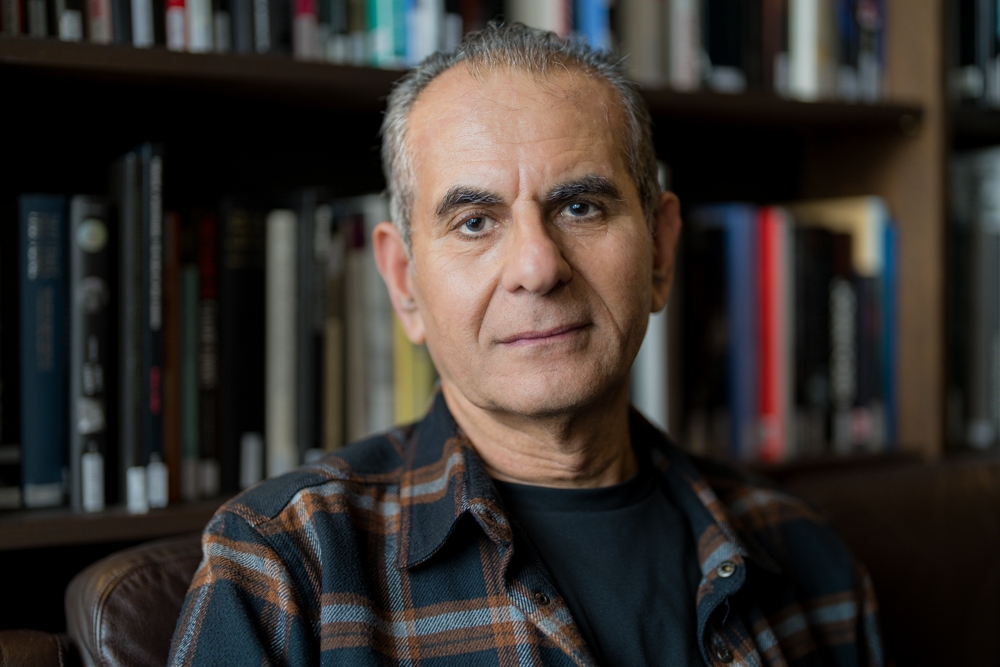Abdullah Ocalan’s Call for PKK Disarmament: A Turning Point in Kurdish-Turkish Relations
Dr Rebwar Fatah
Abdullah Ocalan, the imprisoned leader of the Kurdistan Workers’ Party (PKK), has made a statement calling for the group to lay down its arms and dissolve itself. This announcement could mark a significant turning point in the decades-long conflict between the PKK and Turkey, which has claimed tens of thousands of lives. Ocalan’s statement emphasizes that armed struggle is no longer necessary due to democratic steps taken by the Turkish government and broader regional developments.
Potential Pathways to Peace
This development could potentially pave the way for a new era of peace and stability in the region. However, the reactions of various factions within the PKK and the Turkish government will play a crucial role in determining the outcome. While Ocalan’s call for disarmament may seem like a significant concession, it could also be viewed as a strategic step towards long-term stability and negotiations.
By advocating for the cessation of armed struggle, Ocalan may be aiming to create an environment conducive to future negotiations and democratic reforms. The success of this initiative will largely depend on how both the Turkish government and various Kurdish factions respond. If meaningful dialogue emerges, leading to concrete steps toward addressing Kurdish rights and autonomy, the Kurdish community could ultimately benefit from this shift in strategy.
Impact on the PKK and Its Offshoots
Ocalan’s call extends beyond the PKK and includes its affiliated groups, such as the Syrian Democratic Forces (SDF). The SDF has been a key US ally in the fight against ISIS in Syria, receiving military and logistical support. Disarming the SDF would contradict US policy and could undermine efforts to counter ISIS and maintain regional stability. Additionally, the disarmament of PKK fighters in the Qandil Mountains and Iraq would have significant implications, including:
- Disarmament and Reintegration: PKK fighters might undergo a disarmament, demobilization, and reintegration (DDR) process, potentially with support from international organizations and local governments.
- Legal and Political Negotiations: Talks between the PKK, the Iraqi government, and the Kurdish Regional Government (KRG) could shape the legal status and future of disarmed fighters.
- Security Concerns: The withdrawal of armed factions may create power vacuums that could be exploited by extremist groups or rival factions.
- Humanitarian Support: Many PKK fighters have lived under harsh conditions and would require assistance with medical care, housing, and employment opportunities.
- Regional Implications: The disarmament could shift dynamics between Turkey, Iraq, and Kurdish regions, influencing broader Middle Eastern geopolitics.
The cooperation and commitment of all involved parties, including local governments and international actors, would be crucial in ensuring a smooth transition.
The Turkish Government’s Response and International Implications
Turkey, along with the European Union and the United States, classifies the PKK as a terrorist organization. This classification means that Turkey views PKK members as unlawful combatants and considers their imprisonment necessary. The Turkish government has historically treated the Kurdish question as a security issue rather than a matter of civil rights and political recognition.
Ocalan’s call for disarmament aligns with a broader peace initiative supported by Turkish President Recep Tayyip Erdogan’s coalition partner, Devlet Bahceli. Bahceli has suggested that Ocalan could be granted parole if the PKK renounces violence and disbands. However, without reciprocal commitments from Turkey regarding Kurdish political and cultural rights, skepticism remains among the Kurdish population.
Challenges and Future Prospects
Ocalan’s call for disarmament is a major development, but its success will depend on multiple factors, including:
- Political Will: The Turkish government must demonstrate a willingness to engage in meaningful reforms beyond security measures.
- International Pressure: The global community can influence Turkey to address the Kurdish issue through peaceful, democratic means.
- Economic Incentives: Peace could attract investments and economic growth, benefiting both Turkey and Kurdish regions.
- Ethical Responsibility: Acknowledging the legitimate rights of the Kurdish people aligns with international human rights standards.
Without the leverage of armed struggle, the Kurdish movement would need to rely on peaceful advocacy, political engagement, and alliances to push for their rights. The power of negotiation should not be underestimated, as history has shown that sustained, non-violent activism can achieve significant political change.
The Role of the Kurdistan Democratic Party (KDP) and Regional Alliances
The Kurdistan Democratic Party (KDP), led by the Barzani family, has maintained relatively strong ties with Turkey, particularly in trade and economic cooperation. While the immediate threat from the PKK might be reduced, other factors—such as regional stability, economic interests, and political alliances—will continue to shape Turkey’s engagement with the Kurdish leadership in Iraq.
Ocalan’s Waning Influence and the PKK’s Future
Ocalan’s influence within the PKK has diminished over the years due to his imprisonment and the organization’s evolving leadership structure. The PKK operates with a decentralized command, with factions in the Qandil Mountains and affiliated groups in Syria. This decentralization means Ocalan’s call for disarmament may not be universally accepted within the PKK, potentially leading to internal divisions.
The future of the PKK will largely depend on whether its various factions unify under Ocalan’s vision or splinter into separate groups with differing agendas. The potential for chaos or fragmentation is a serious concern.
The Shift to Civil Society and Political Advocacy
The dissolution of the PKK could open space for Kurdish civil society organizations to take the Kurdish issue forward through peaceful means. Without an armed faction dominating the movement, more opportunities could arise for political engagement and legal advocacy. This transition, however, must be carefully managed to avoid power vacuums and instability.
Conclusion
Ocalan’s call for the PKK to disarm and dissolve itself is a pivotal moment in the Kurdish-Turkish conflict. While it presents an opportunity for peace, the success of this initiative depends on the responses from the Turkish government, PKK factions, and international actors. Addressing Kurdish aspirations through democratic processes rather than military suppression is the only sustainable path toward long-term stability.
If genuine dialogue and political reforms follow, Ocalan’s call could mark the beginning of a new chapter in Kurdish-Turkish relations. However, if the Turkish government continues to prioritize security measures over democratic engagement, the prospects for lasting peace will remain uncertain.
.
Dr Rebwar Fatah is the founder and the Managing Director of the Middle East Consultancy Services.
Author Profile

- Dr. Rebwar Fatah is a UK-based researcher and MENA expert specializing in political and regional affairs, governance, and media. Passionate about writing, poetry, and photography.
 Social30 January 2026Kurdish Deq is the Power of Seven
Social30 January 2026Kurdish Deq is the Power of Seven Uncategorised30 January 2026The Kurdish Question as a Legal–Political Failure: Selective Humanitarianism and the Erosion of International Law
Uncategorised30 January 2026The Kurdish Question as a Legal–Political Failure: Selective Humanitarianism and the Erosion of International Law Uncategorised26 January 2026Freedom of Expression and Legal Limits under Iraqi and Kurdistan Region Law
Uncategorised26 January 2026Freedom of Expression and Legal Limits under Iraqi and Kurdistan Region Law World16 January 2026Aleppo: A Legal Assessment of Alleged Atrocities in Aleppo
World16 January 2026Aleppo: A Legal Assessment of Alleged Atrocities in Aleppo

